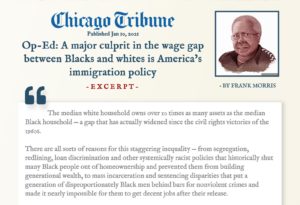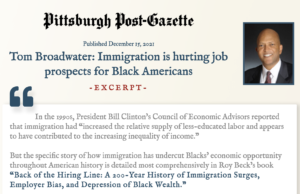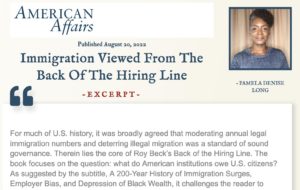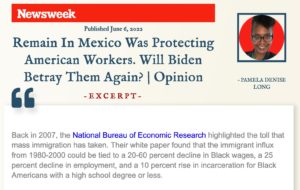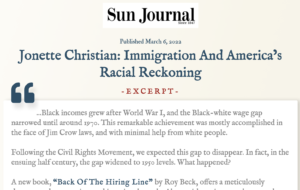Get your copy of Back of the Hiring Line shipped directly to your address.

T Willard Fair – The Philadelphia Tribune
“As my friend Roy Beck told me, economic history demonstrates that every time immigration levels have risen significantly, inequality has grown as well. The reverse is also true….It simply means that if we want to create a fairer economy, we can no longer ignore immigration’s unique contribution to racial inequality.”

